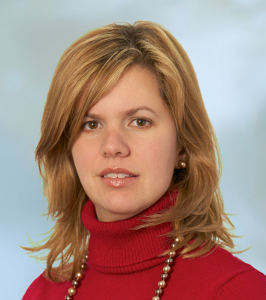
The NSL welcomes Dr. Monica Menendez to continue her research in transport engineering at the Institute for Transport Planning and Systems at the ETH Zurich. We interviewed her about her professional interests.
Which is the thematic focus of your work?
I’m interested in carrying out cutting-edge research in the area of Traffic Flow Theory and Operations. My ultimate goal is to improve transportation systems and move them towards a sustainable state. To achieve this, I believe we need both empirical and theoretical studies, as well as an interdisciplinary approach.
I’m very interested in further understanding the physics of traffic, and employing such knowledge in the development of innovative solutions to improve the performance of the transportation systems. We must look at traffic both at the microscopic and the macroscopic levels (i.e., vehicle and network levels) to get a better picture of reality. Given the complexity of the transportation environment and the traffic phenomena, I believe there is a lot of room to develop or improve existing mathematical models (and simulations) to better replicate real conditions. I also believe in a multi-modal perspective, greener mobility patterns, sharing of information, a more rational use of our resources, and better employment of technology to achieve these goals.
What do you see as the primary differences and similarities in traffic engineering in Switzerland, compared to the countries you are familiar with based on your research experience?
Most of my research experience is in the United States. Since that is a car-centric society, a good amount of research there has gone into developing new traffic management techniques. One of the main goals throughout the years has been to improve existing facilities from an operational perspective (e.g., through the use of High Occupancy Vehicle lanes, ramp metering, etc.). Countries like Switzerland, on the other hand, have a considerably stronger background on public transportation.
In my perspective, however, the best approach would be to consider both sides of the equation (private and public transportation), and optimize the system as a whole. As a matter of fact, the concepts of accessible and efficient public transportation, walkable cities, and non-motorized transportation modes are gaining strength nowadays in the U.S. At the same time, we are importing in Europe many of the traffic management techniques originally developed there. That being said, I believe a lot remains to be done. We are still quite far from a sustainable system both in terms of research and implementation.
What does interdisciplinary integration at the NSL mean to you, and what do you hope to gain from it?
Transportation is a highly interdisciplinary field. Hence my plan is not only to continue borrowing people and ideas from other disciplines, but to establish collaborative relationships that benefit us all. NSL, by design, provides the perfect breeding ground for such collaborations.
Based on my own experience, I believe that a large proportion of the cutting-edge research happens in interdisciplinary environments. Such environments typically foster innovative and out-of-the-box research methods and more importantly, drive ground-breaking research results. I am confident that NSL’s coverage of multiple disciplines will help me identify joint-research opportunities that span many other areas beyond Traffic Engineering. We must definitely leverage the expertise of faculty members across the university to benefit ETH Zurich and its research community as a whole.